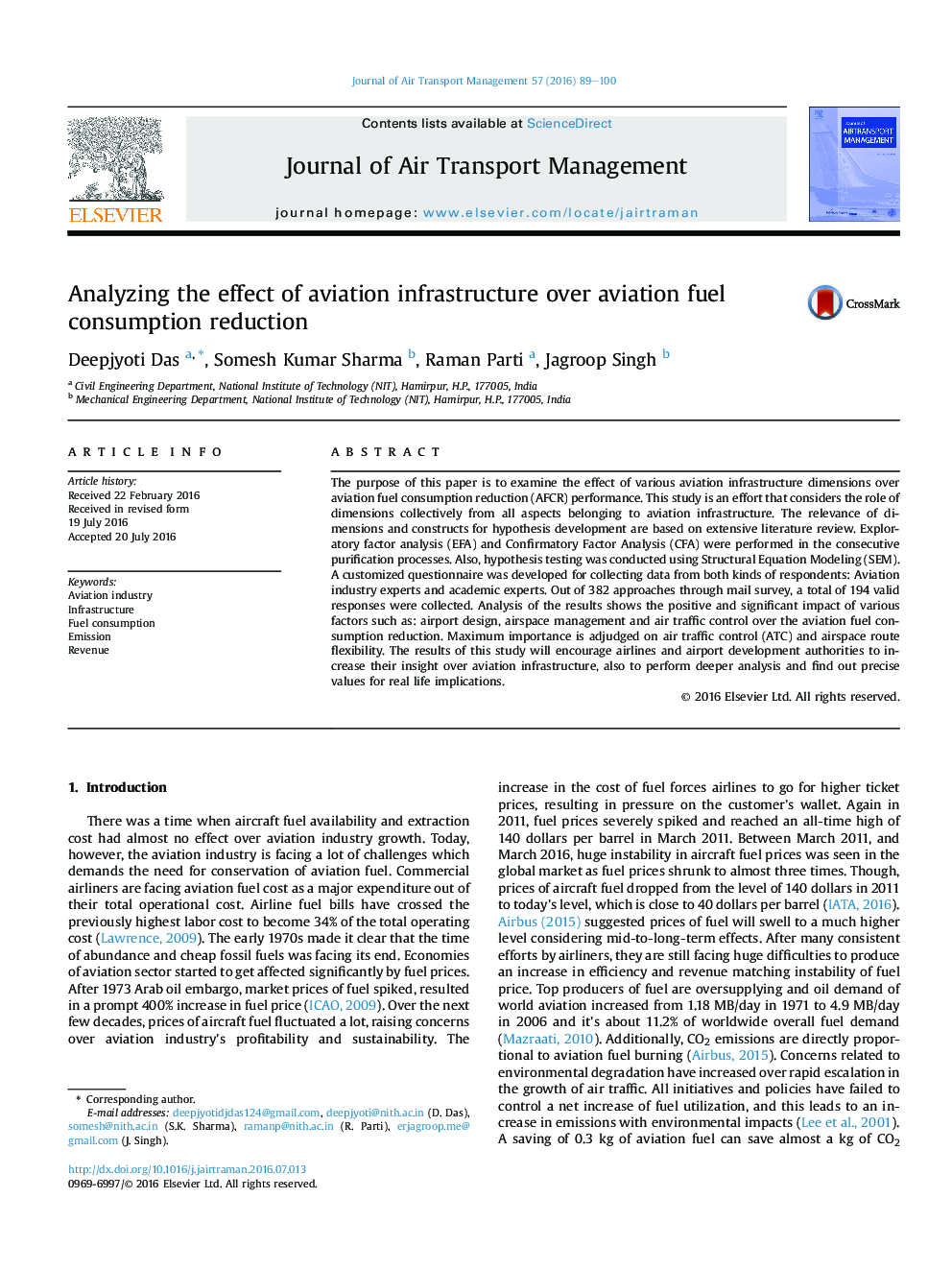| Article ID | Journal | Published Year | Pages | File Type |
|---|---|---|---|---|
| 7435408 | Journal of Air Transport Management | 2016 | 12 Pages |
Abstract
The purpose of this paper is to examine the effect of various aviation infrastructure dimensions over aviation fuel consumption reduction (AFCR) performance. This study is an effort that considers the role of dimensions collectively from all aspects belonging to aviation infrastructure. The relevance of dimensions and constructs for hypothesis development are based on extensive literature review. Exploratory factor analysis (EFA) and Confirmatory Factor Analysis (CFA) were performed in the consecutive purification processes. Also, hypothesis testing was conducted using Structural Equation Modeling (SEM). A customized questionnaire was developed for collecting data from both kinds of respondents: Aviation industry experts and academic experts. Out of 382 approaches through mail survey, a total of 194 valid responses were collected. Analysis of the results shows the positive and significant impact of various factors such as: airport design, airspace management and air traffic control over the aviation fuel consumption reduction. Maximum importance is adjudged on air traffic control (ATC) and airspace route flexibility. The results of this study will encourage airlines and airport development authorities to increase their insight over aviation infrastructure, also to perform deeper analysis and find out precise values for real life implications.
Related Topics
Social Sciences and Humanities
Business, Management and Accounting
Strategy and Management
Authors
Deepjyoti Das, Somesh Kumar Sharma, Raman Parti, Jagroop Singh,
